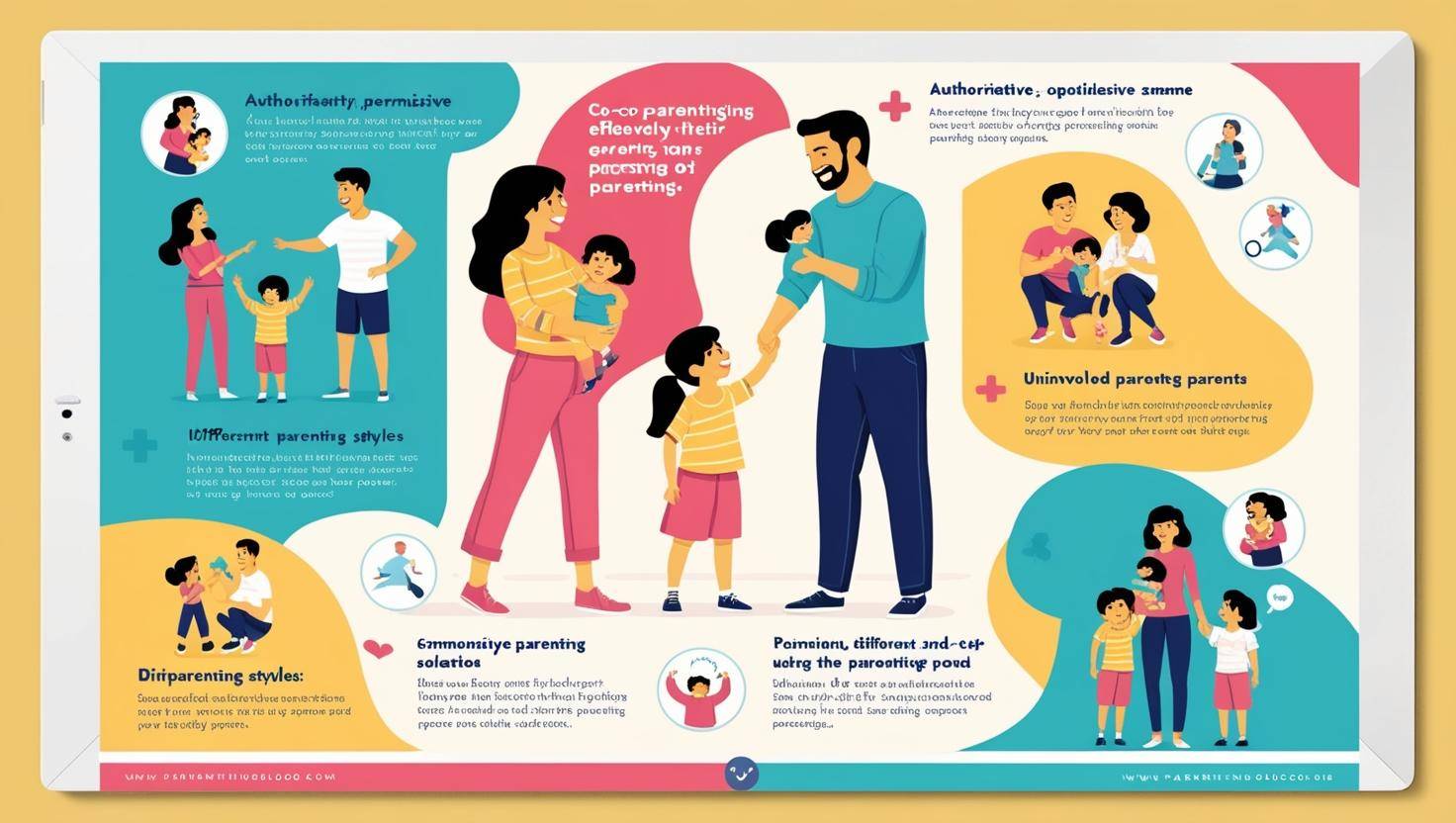Introduction
Parenting is one of the most rewarding yet challenging aspects of any relationship. While love and commitment form the foundation of a strong family, differing parenting styles can lead to tension, misunderstandings, and conflicts between partners. These differences may stem from cultural backgrounds, personal upbringing, or simply unique perspectives on discipline, education, and child-rearing.
Navigating different parenting styles is crucial to maintaining a healthy relationship and fostering a stable environment for children. By understanding each other’s viewpoints, finding common ground, and implementing effective communication strategies, couples can work together to raise happy, well-adjusted children.
In this article, we’ll explore:
The different parenting styles and their characteristics
Common causes of parenting conflicts
The impact of inconsistent parenting on children
Effective strategies for navigating parenting differences
Communication techniques for resolving disagreements
The role of compromise and teamwork in parenting
By the end, you’ll have the tools and knowledge to manage differing parenting styles while strengthening your relationship and ensuring your child’s well-being.
Understanding Different Parenting Styles
Psychologists often categorised parenting styles into four main types, based on the work of Diana Baumrind and later expanded by Maccoby and Martin. Each style has distinct characteristics and effects on children’s development.
1. Authoritarian Parenting
High expectations, strict rules, and little flexibility
Emphasis on obedience and discipline
Minimal open communication
Punishment rather than discussion when rules are broken
Impact on Children:
May develop good discipline and responsibility
Can struggle with self-esteem and decision-making
Might experience anxiety or rebellion due to rigid rules
2. Authoritative Parenting (Balanced Approach)
High expectations but with warmth and responsiveness
Encourages independence while setting clear boundaries
Uses reasoning and communication to enforce rules
Discipline is fair and focused on learning rather than punishment
Impact on Children:
High self-esteem and confidence
Strong problem-solving and communication skills
Ability to regulate emotions effectively
3. Permissive Parenting
Few rules and little discipline
Prioritizes the child’s happiness over structure
Acts more as a friend than an authority figure
Avoids conflict, allowing children to set their own rules
Impact on Children:
Can develop strong creativity and independence
May struggle with boundaries and self-control
Difficulty handling authority and responsibility
4. Uninvolved Parenting
Minimal emotional involvement
Few or no expectations and little supervision
Basic needs met but little guidance provided
Parents may be overwhelmed, disinterested, or absent
Impact on Children:
Low self-esteem and confidence
Increased risk of behavioral problems
Struggles with relationships and emotional regulation
Each parent in a relationship may lean toward one of these styles based on their upbringing, values, and personal beliefs. When two different styles collide, it can create conflicts that affect the child’s development and the couple’s relationship.
Common Causes of Parenting Conflicts
Understanding the root causes of parenting disagreements can help couples address them effectively. Here are some common reasons couples may clash over parenting:
1. Different Upbringings
People often parent the way they were raised, whether they had strict, lenient, or neglectful parents. If one partner values structure and discipline while the other believes in giving children more freedom, conflicts may arise.
2. Cultural and Religious Differences
Cultural and religious beliefs strongly influence parenting approaches. Disagreements may occur regarding discipline, gender roles, or traditions that affect child-rearing.
3. Discipline Disagreements
One parent may believe in firm discipline while the other prefers a more lenient approach. This can confuse the child and create division in the household.
4. Role Expectations
Some couples struggle with expectations regarding parental roles. If one partner expects the other to handle all child-rearing responsibilities, resentment can build.
5. Overcompensating for Childhood Experiences
Parents who had difficult childhoods may go to extremes to ensure their child has a different experience. For example, someone with strict parents may become overly permissive, while someone with absent parents may become overly controlling.
6. Stress and External Pressures
Financial stress, work commitments, and extended family influence can create tension in parenting decisions. A stressed-out parent may become impatient or inconsistent.
The Impact of Inconsistent Parenting on Children
When parents have conflicting parenting styles, children often receive mixed messages. This inconsistency can lead to several issues:
Confusion – Children struggle to understand which rules to follow.
Behavioral Problems – Inconsistent discipline can lead to defiance, tantrums, and manipulation.
Emotional Stress – Seeing parents argue about parenting can cause anxiety and insecurity.
Struggles with Authority – Children may not learn how to respect rules or boundaries.
To create a stable environment, parents must find ways to bridge their differences and create a united approach to parenting.
Strategies for Navigating Different Parenting Styles
1. Acknowledge and Accept Differences
Recognize that no single parenting style is perfect. Instead of viewing your partner’s style as wrong, try to understand their perspective and find balance.
2. Establish Common Goals
Discuss your shared goals for your child’s upbringing. Do you want them to be independent, disciplined, or creative? Align your parenting approaches with these goals.
3. Create a Consistent Approach
Agree on key rules and consequences to ensure consistency. For example, if one parent enforces bedtime while the other is lenient, work together to set a reasonable bedtime routine.
4. Compromise on Discipline Methods
Find a middle ground in disciplining your child. If one parent prefers strict punishment and the other believes in positive reinforcement, mix both approaches for a balanced outcome.
5. Present a United Front
Never argue about parenting in front of your child. Discuss differences privately and present decisions as a team.
6. Respect Each Other’s Strengths
Recognize that each parent brings unique strengths to parenting. If one is great at teaching discipline and the other excels at emotional support, balance these roles instead of competing.
7. Seek Outside Help if Needed
If parenting conflicts persist, consider family counseling or parenting classes to learn effective strategies for co-parenting.
Communication Techniques for Resolving Parenting Disagreements
1. Use “I†Statements
Instead of blaming, express your feelings with “I†statements. Example: “I feel concerned when rules aren’t enforced consistently.â€
2. Listen Without Interrupting
Give your partner space to share their perspective without immediately reacting.
3. Avoid Criticism and Defensiveness
Approach conversations with respect instead of making accusations.
4. Schedule Parenting Discussions
Set aside time to discuss parenting issues rather than arguing in the moment.
5. Be Willing to Adjust
Parenting is a learning process. Be open to adjusting your approach as your child grows and their needs change.
Conclusion
Navigating different parenting styles in a relationship requires patience, understanding, and teamwork. By acknowledging differences, setting common goals, and improving communication, couples can create a balanced approach that benefits both their relationship and their child’s development.
Remember, parenting is a journey that evolves over time. By working together and supporting each other, you can build a strong family foundation that fosters love, respect, and harmony.


